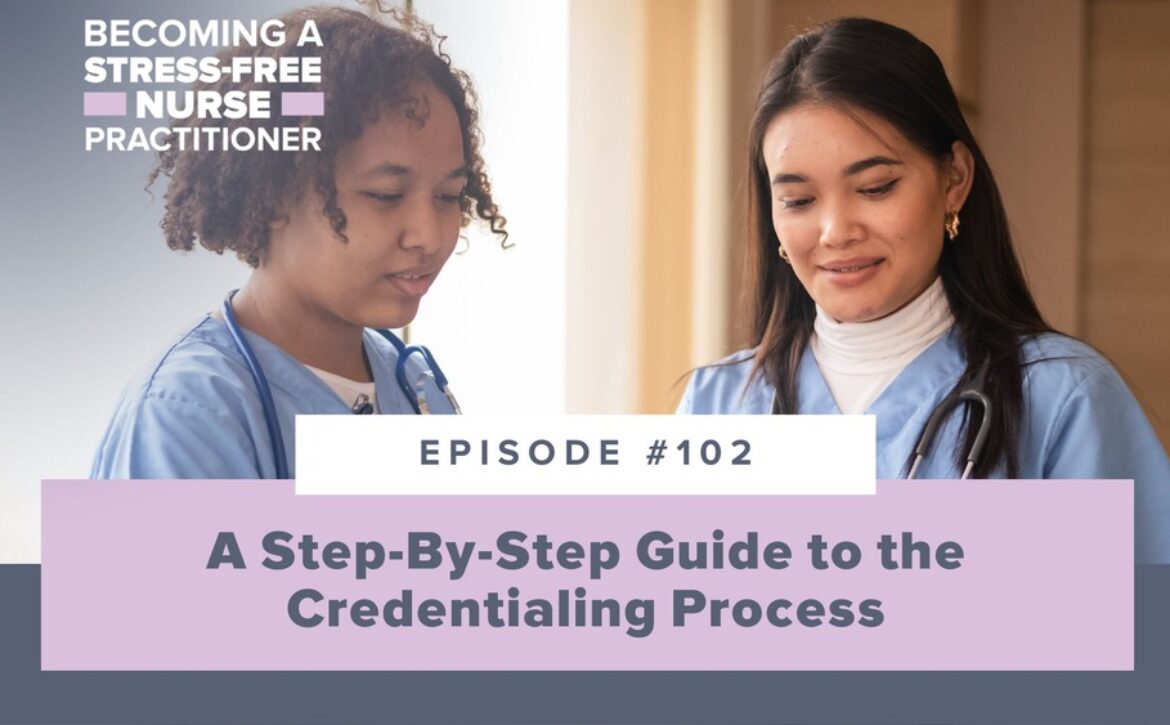
How to Become a Nursing & Prescribing: Step-by-Step Guide
Are you ready to take your nursing career to the next level? Imagine the power and satisfaction of not only caring for patients but also having the authority to prescribe medications that could change their lives.
Becoming a nurse prescriber is a rewarding step that opens up new opportunities and enhances your professional skills. This path allows you to make an even greater impact on your patients’ health while boosting your career potential. We’ll guide you through the essential steps, tips, and insights needed to transform your nursing role into one that includes prescribing.
Get ready to unlock your full potential and discover how you can become a trusted healthcare provider in a rapidly evolving field. Let’s dive into the world of nursing and prescribing, where your aspirations meet real-world impact.

Education Requirements
Becoming a nurse and prescriber involves specific education steps. Understanding these steps helps you plan your career path effectively. It starts with the right educational foundation.
Bachelor’s Degree In Nursing
A Bachelor’s degree in Nursing is essential. This program provides a strong foundation in health care. Students learn about patient care, anatomy, and medical ethics. It typically takes four years to complete. Accredited nursing schools offer these programs.
Students gain practical experience through clinical placements. These placements occur in hospitals and clinics. They help students apply their classroom knowledge. Graduates must pass the NCLEX-RN exam. This exam is necessary to become a registered nurse.
Advanced Nursing Programs
After a Bachelor’s degree, some pursue advanced nursing programs. These programs offer specialized training. Nurse practitioners often attend these programs. They focus on patient diagnosis and treatment.
Many choose a Master of Science in Nursing (MSN). This degree takes about two years. It includes courses in pharmacology and advanced health assessment. Graduates often pursue certification in specific fields. These fields include family care and pediatrics.
Licensing And Certification
Becoming a nurse who prescribes medication involves meeting specific criteria. Licensing and certification are key components of this process. Ensuring compliance with these requirements is crucial. This section outlines the steps to achieve the necessary credentials.
Registered Nurse License
A Registered Nurse (RN) license is the first step. It validates your ability to practice nursing. Complete an accredited nursing program. Pass the NCLEX-RN exam. This exam tests your knowledge and skills. It ensures you can provide safe and effective care. Once successful, apply for licensure with the state board of nursing. Each state has different requirements. Check your state’s specific guidelines. Maintaining your RN license is equally important. Regularly fulfill continuing education requirements.
Advanced Practice Registered Nurse Certification
To prescribe medications, an Advanced Practice Registered Nurse (APRN) certification is essential. This certification represents advanced clinical knowledge. Choose a specialty like Nurse Practitioner or Clinical Nurse Specialist. Complete a master’s or doctoral program in nursing. Pass a national certification exam specific to your specialty. This exam confirms your advanced expertise. Apply for certification through recognized bodies. Certification requirements may vary. Regular renewal and continuing education are necessary. Stay updated with clinical practices and guidelines.
Specialized Training
Becoming a nurse prescriber requires more than just a passion for helping others. It demands specialized training that equips you with the skills to prescribe medications safely and effectively. This training is your pathway to expanding your role in patient care, offering you the chance to make critical decisions about treatment plans.
Imagine the impact you could have, being able to prescribe medication as part of a holistic approach to patient care. Specialized training is the stepping stone to achieving this, bringing you closer to becoming a pivotal part of healthcare teams. Let’s dive into the key components of this training.
Prescribing Courses
Prescribing courses are essential for your journey. They are designed to build your knowledge of pharmacology, pathophysiology, and the legal aspects of prescribing. You will learn to assess patients’ needs and determine the appropriate medication.
The courses often include interactive sessions, allowing you to engage with scenarios that mimic real-life situations. This practical approach helps you develop critical thinking skills. These courses also include assessments to ensure you can apply your knowledge confidently.
Consider this: after completing a prescribing course, a nurse shared how she felt empowered to make decisions that directly improved patient outcomes. Could this be your next step?
Clinical Practice Experience
Clinical practice experience is where you put theory into action. It provides you with hands-on experience in a supervised setting, bridging the gap between classroom learning and real-world application.
During this phase, you will work alongside experienced healthcare professionals. They guide you as you prescribe medications, allowing you to gain confidence and refine your skills. This practical exposure is invaluable in preparing you for independent practice.
Think about the satisfaction of seeing immediate improvements in your patients’ health because of your prescriptions. How would that change your approach to nursing and patient care?
Specialized training is not just about gaining qualifications. It’s about transforming your role and making a significant impact on patients’ lives. As you pursue these courses and gain clinical experience, remember that each step brings you closer to achieving your goal of becoming a proficient nurse prescriber.
Choosing A Specialty
Choosing a specialty in nursing and prescribing requires careful thought. Consider your interests, strengths, and career goals. Research different fields and talk to experienced professionals for insights.
Choosing a specialty in nursing and prescribing can be a pivotal moment in your career. It’s a decision that shapes your professional journey, influences your daily responsibilities, and affects your long-term satisfaction. This choice is not just about finding a niche; it’s about aligning your passion with the needs of the healthcare industry. As you navigate this path, consider your interests, strengths, and the impact you want to make.
Areas Of Focus
Different specialties offer unique areas of focus. Some nurses thrive in fast-paced environments like emergency rooms, where quick decision-making is crucial. Others prefer the detailed-oriented nature of pediatrics, where you nurture young patients through their developmental milestones. Think about what excites you. Do you find joy in patient education and preventive care? Then public health might be your calling. If you’re driven by research and innovation, consider a specialty in clinical trials or nursing informatics.
Career Opportunities
Each specialty unlocks distinct career opportunities. Specializing in mental health nursing, for example, can lead you to roles in psychiatric hospitals or community health centers. As a nurse practitioner, you might open your own practice, focusing on family medicine or women’s health. Specialties like oncology or cardiology often have a high demand for skilled professionals, offering robust job security and the chance to work in cutting-edge medical fields. Reflect on where you see yourself in five years. Are you aiming for leadership roles or interested in teaching future nurses? Your specialty choice can set the stage for these ambitions. Choosing a specialty is not just about filling a role. It’s about finding where you can make the most impact. What do you want to contribute to the world of healthcare? This decision will guide your career trajectory, influence your daily work life, and define the legacy you leave behind.
Practical Experience
Practical experience is a cornerstone in the journey to becoming a proficient nurse and prescriber. It bridges the gap between theoretical knowledge and real-world application. As you navigate through this path, you’ll find that hands-on experience not only enhances your skills but also builds your confidence.
Internships And Residencies
Internships and residencies offer a structured environment to apply your classroom learning. They are crucial stepping stones in your nursing career. During these periods, you work alongside seasoned professionals, gaining invaluable insights into patient care.
Many programs have partnerships with hospitals and clinics, providing you access to diverse medical settings. You might find yourself working in a bustling emergency room or a quiet pediatric ward. Each setting presents unique challenges and learning opportunities.
Have you ever wondered how you would react in a high-pressure medical situation? Internships and residencies are the perfect time to find out. They prepare you for real-world scenarios, teaching you to think on your feet and make informed decisions.
Supervised Practice
Supervised practice is another critical component of your training. It involves working under the guidance of experienced nurses and prescribers. This phase allows you to refine your skills with direct feedback from mentors.
In supervised practice, you’ll perform tasks ranging from patient assessments to medication administration. With each task, you gain confidence and competence. Your mentors are there to support you, offering advice and sharing their experiences.
Consider each supervised session a chance to grow. Ask questions, seek clarification, and absorb as much knowledge as possible. This proactive approach will enrich your learning experience and prepare you for independent practice.
Practical experience in nursing and prescribing is not just about skill acquisition. It’s about shaping you into a healthcare professional ready to tackle the challenges of modern medicine. Are you ready to embrace this journey?

Continuous Education
Continuous education is vital for nursing and prescribing professionals. It ensures they stay skilled and knowledgeable. This field constantly evolves, demanding ongoing learning. Nurses and prescribers need to adapt to new practices and technologies. Continuous education supports their growth and enhances patient care.
Professional Development
Professional development strengthens a nurse’s expertise. It builds confidence and competence in prescribing. Regular workshops and seminars offer valuable insights. They provide hands-on experiences and peer interactions. Such activities foster learning and improve skills. Professional development keeps nurses ahead in their field.
Staying Updated With Medical Advancements
Medical advancements occur rapidly. Staying updated is crucial for effective prescribing. Online courses offer accessible learning resources. They cover the latest treatments and techniques. Journals and publications provide current medical research. Following these resources keeps nurses informed. This knowledge enhances patient outcomes and safety.
Job Search Strategies
Explore pathways to become a nurse with prescribing authority by researching educational requirements and certifications. Networking with healthcare professionals can provide valuable insights and opportunities. Gaining practical experience in clinical settings enhances your skills and boosts job prospects.
Navigating the job market as a nursing professional with prescribing qualifications requires strategic planning. You might wonder how to stand out in a crowded field. Effective job search strategies can make all the difference in landing the position you aspire to. Let’s dive into some practical approaches to help you succeed.
Networking Tips
Networking is a powerful tool in your job search arsenal. Attend nursing conferences, workshops, and seminars to meet industry professionals. Engage in conversations, share your experiences, and express your interest in roles that involve prescribing. Leverage social media platforms like LinkedIn to connect with other professionals. Join nursing groups and participate in discussions. These connections can lead to job referrals and valuable insights into the industry. Consider reaching out to mentors or former colleagues who can offer guidance or introductions. A simple message can open doors to opportunities you might not find otherwise. How will you expand your professional circle today?
Resume And Interview Preparation
Your resume is your first impression. Tailor it to highlight your prescribing qualifications and relevant nursing experience. Use clear, concise language and incorporate keywords from job descriptions to pass Applicant Tracking Systems. Practice answering common interview questions to boost your confidence. Focus on your unique skills and how they align with the job you’re applying for. Remember, specific examples of past successes can make your responses more compelling. Prepare questions for your interviewer. This shows your interest in the role and helps you determine if the position is the right fit for you. What questions will you ask to learn more about potential employers?

Frequently Asked Questions
What Qualifications Are Needed For Nursing And Prescribing?
To become a nurse prescriber, you need a nursing degree and registration with a nursing body. Additional training in pharmacology and prescribing is required. This is often part of a postgraduate course. Some countries may also require a specific prescribing qualification.
Always check local regulations for precise requirements.
How Long Does It Take To Qualify As A Nurse Prescriber?
Becoming a nurse prescriber typically takes several years. First, you need to complete a nursing degree, which usually takes three to four years. Then, you’ll need additional training in prescribing, which can take several months. Overall, it may take four to five years.
Can Nurses Prescribe Medications Independently?
Yes, nurse prescribers can prescribe medications independently in many regions. However, their scope of practice can vary by country and local regulations. They often focus on specific areas like primary care. It’s important to understand local laws and guidelines to ensure compliance.
What Are The Benefits Of Becoming A Nurse Prescriber?
Becoming a nurse prescriber offers enhanced career opportunities and increased responsibility. It allows for greater autonomy in patient care. Nurse prescribers can improve healthcare efficiency by managing patient medications directly. This role can lead to higher job satisfaction and potential salary increases.
Conclusion
Becoming a nursing and prescribing professional is a rewarding journey. Start by gaining relevant qualifications and experience. Stay updated with current medical practices. Build strong communication skills to interact effectively with patients. Networking with peers can provide valuable insights and support.
Continuous learning is key in this ever-evolving field. Embrace challenges as opportunities for growth. Your dedication and compassion will make a difference in patients’ lives. Remember, each step brings you closer to your goal. Keep pushing forward. Your efforts will eventually pay off.
You have what it takes to succeed in nursing and prescribing.





